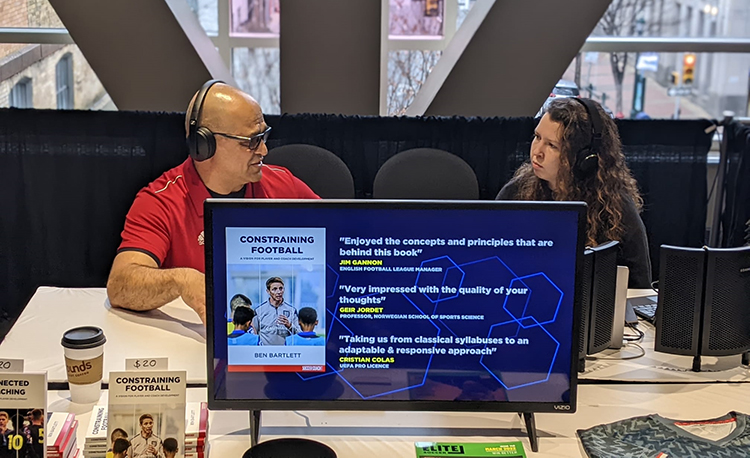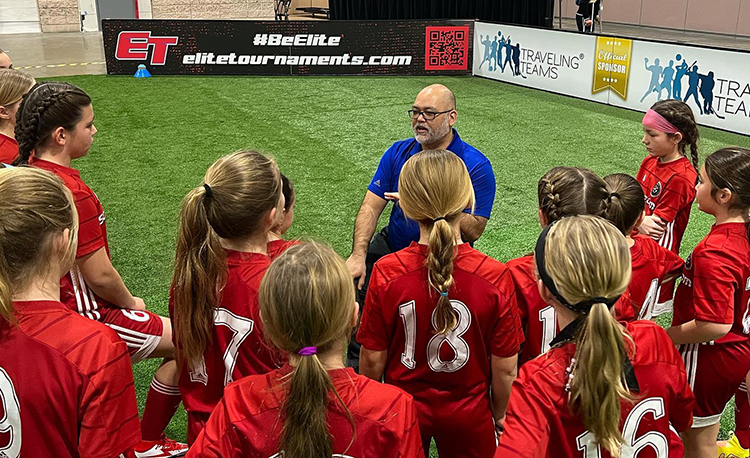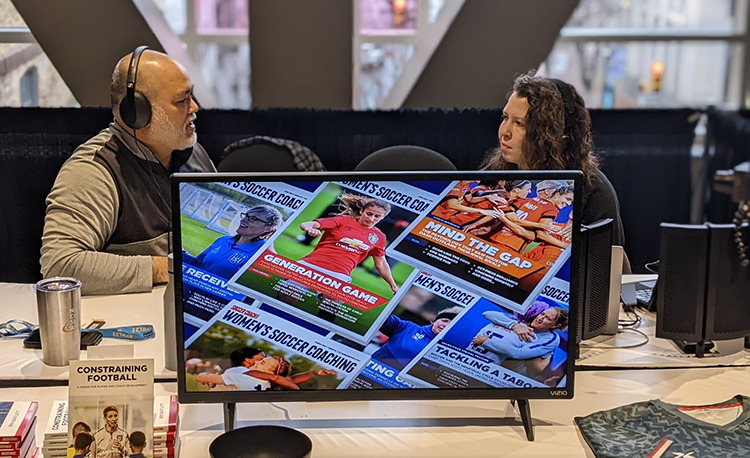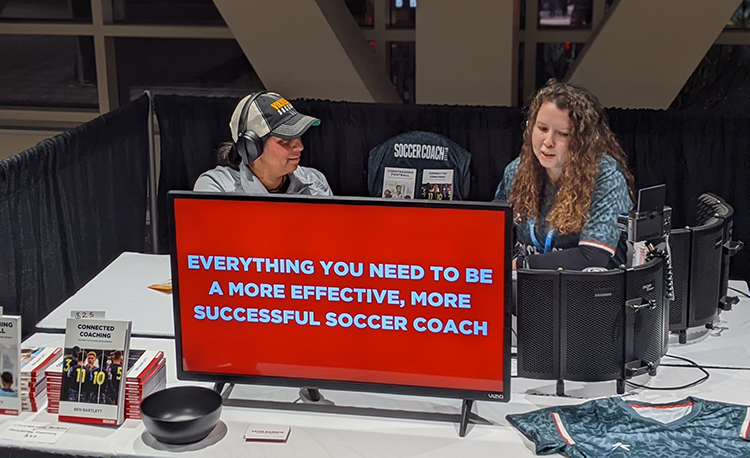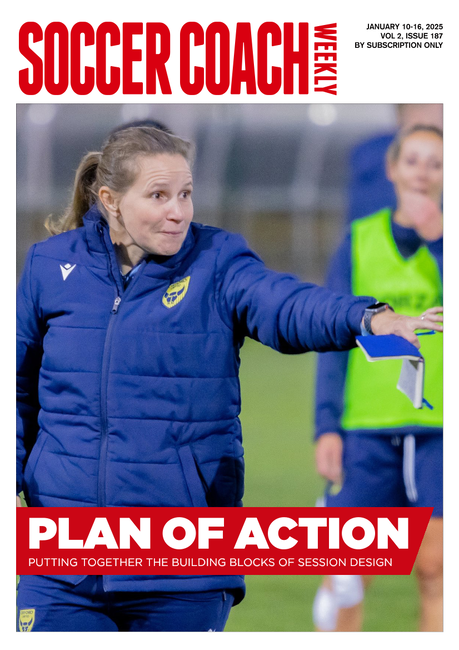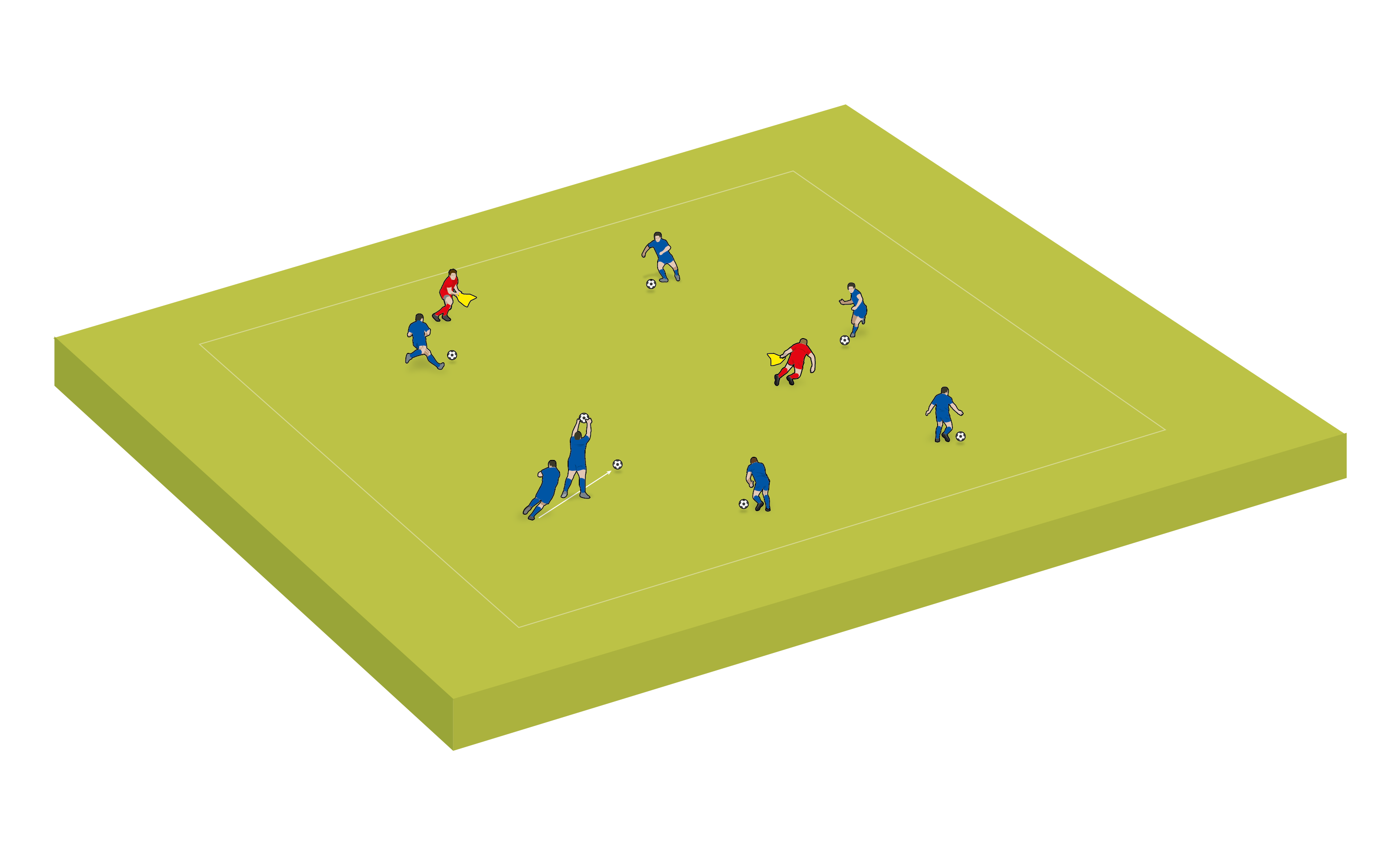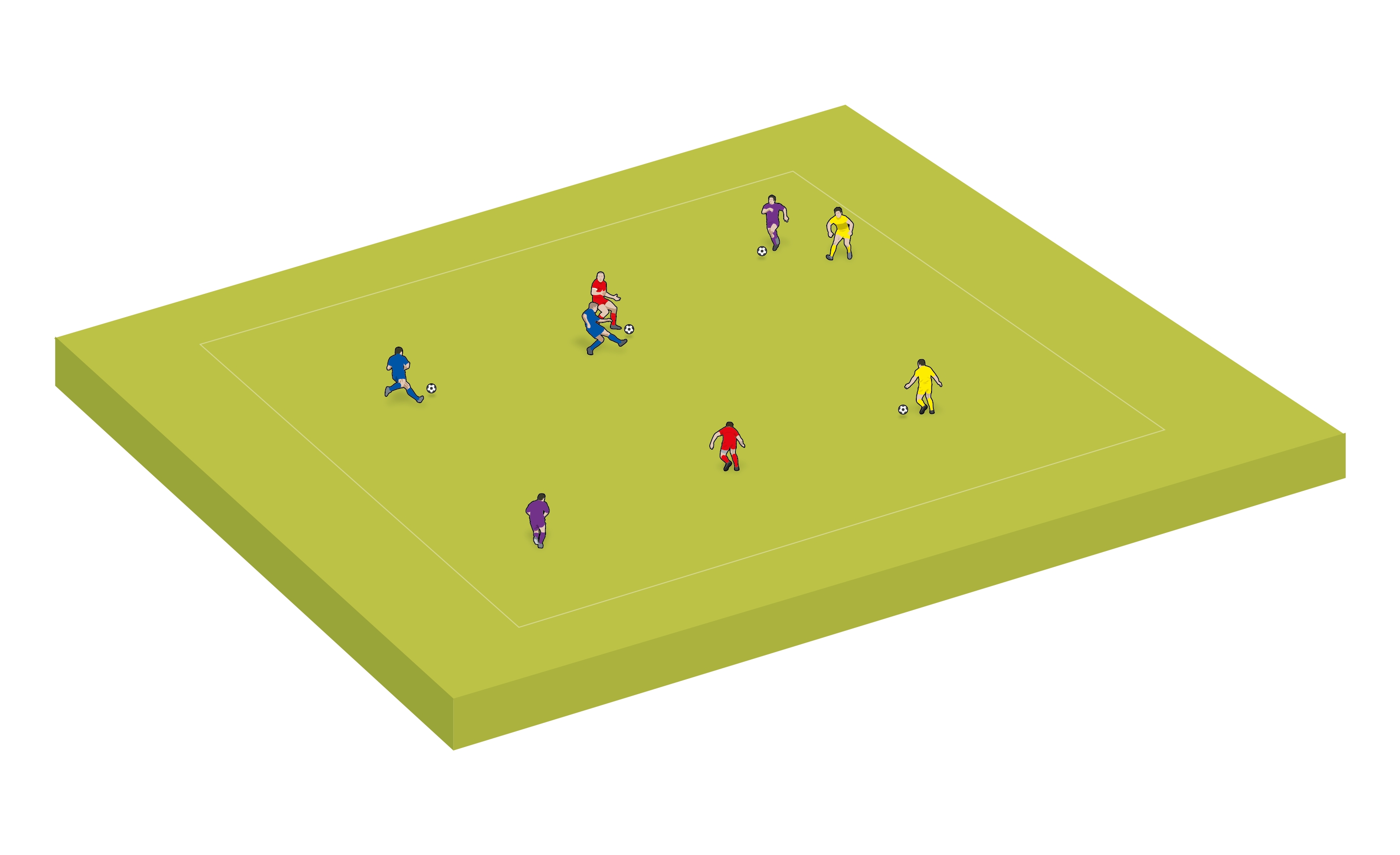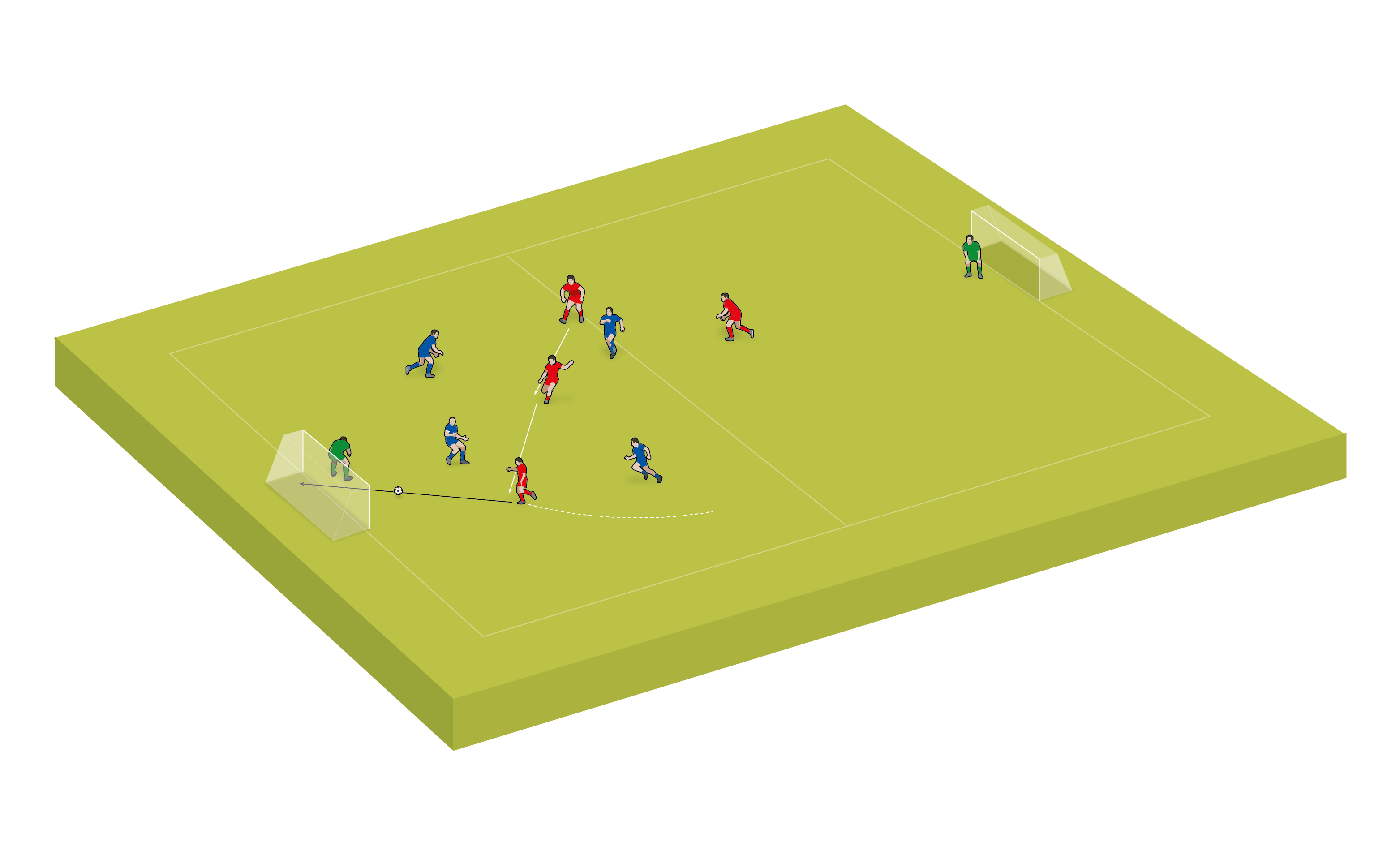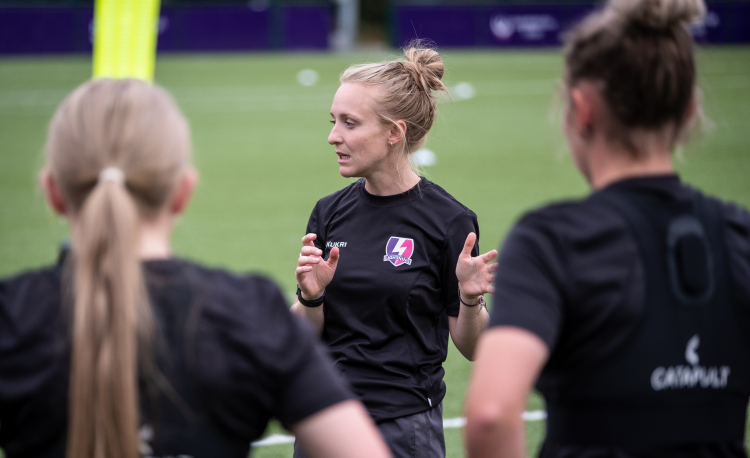GroupThink: 'How do you define coaching?'
SCW poses questions on coaching philosophy to those we spoke to on to give a range of thoughts on a specific topic, as part of a new feature. STEPH FAIRBAIRN gets to the very heart of things...
’take care of the whole person’
"It used to be, I think, defined as ’teach the players how to improve themselves and become better soccer players’. I think it’s transitioned to become so much more than that.
"We now have to be really in tune with the players’ mental health. We have to be in tune with some of the things the players might be bringing into our training sessions and into the classrooms and understand the whole person.
"In the summers I work at Georgetown [University], and it has this great Latin phrase – ’cura personalis’, or ’care of the whole person’. I think that’s what coaching has turned into.
"We now have to be very in tune with that and take care of the whole person and understand there are things that come onto the pitch that we might not be aware of - and have to make ourselves aware of so that we become better coaches.
"It’s become this sort of circle, as opposed to just that little pie piece of ’let’s teach them or coach them to be better soccer players’."
Dr Haroot Hakopian
Head coach, Potomac Soccer Club and Winston Churchill High School
United Soccer Coaches board of directors
’guide and facilitate’
"I think it’s a fascinating question because I also equate parenting to coaching.
"We coach our kids. We may think of it as parenting our kids, but we’re coaching.
"The definition of a coach is really somebody who helps guide and facilitates somebody else’s learning. That’s the very essence of what a coach does: guide and facilitate."
James Wagenschutz
Coach, W Sports Performance
"Guidance, I think, is a big thing with coaches.
"Not fully telling the players how to do it, but guiding them and then letting them be, seeing how they react to positives and negatives, as well."
Sarah Gonzalez
Head coach, Shawnee Mission High School
’can you cultivate an environment?’
Related Files
"Coaching, for me, is what you make of it.
"Some of the best advice I got when I was younger was: ‘For you as a coach, what you are looking for, you will find’.
"I’ll unpack that as simply as I can. If you are looking to coach at the highest levels, and you are going to have the workrate to pursue your licenses and go to these conventions, you are going to find things that allow you to get there.
"If you want to be a coach who works with the younger kids and instils that passion for the game at a young age, you are going to find places where you have the opportunities to do that.
"Coaching, for me, is not necessarily developing players. It is obviously a very big piece, making players better at the game, but it is also about connecting with players.
"It is having players wanting to come to practice, it is having players learn valuable life lessons that they can take with them past the soccer fields, whether or not they continue their playing careers or stop at certain ages.
"It’s the camaraderie piece. It’s the ability to be at a place on a soccer field that you can call home. That’s probably the biggest piece, when that environment is there.
"If the environment is cultivated, players will be able to develop what makes sense for them.
"Some players are super driven. Some players want to be the best they can possibly be and put the work in. Can you create an environment that cultivates that? Some players love coming to practice because of their friends, because of their teammates. Can you cultivate an environment that does that?"
Kyle Martyn
Senior girls director, Philadelphia Ukrainian Nationals Soccer Club
’maximize individuals’
"[It’s about] maximizing individual performance for the team.
"Can you pull everything out of a kid and facilitate them reaching a goal that maybe they didn’t think they could? Or maybe they wanted to, but didn’t know how? Then, 10 years down the line, [it’s about] having that player still playing.
"If it’s pick up, if it’s whatever, if they’re coaching, have them a part of the game, you’ve done your job.
"I base it on how many weddings I get invited to. I went to two in December, they’re both still on our team in Utah, so they’re sophomores and seniors on our team. When you’re invited to weddings, you know you’ve had a pretty lasting impact."
Kai Edwards
Head women’s soccer coach, Southern Utah University
’unlocking potential’
"I do what I do because I love to help.
"I think the power of coaching is often that you can take people places that, without you, they might not have been able to get to.
"You do that in some way, shape or form, whether that’s the support you provide, the education you provide or the platform you provide.
"I really like unlocking potential and I really like going on that journey with individuals in my role, both with players and coaches. It’s helping people.
"Our mission statement is to maximize potential, and that to me summarizes my approach to coaching. I want to help people become the best possible versions of themselves, irrespective of whether that is actually within football or within life."
Tom Shields
Technical director, boys’ ECNL director and USL2 head coach, STA Soccer
Newsletter Sign Up
Coaches Testimonials

Gerald Kearney, Downtown Las Vegas Soccer Club

Paul Butler, Florida, USA

Rick Shields, Springboro, USA

Tony Green, Pierrefonds Titans, Quebec, Canada
Subscribe Today
Discover the simple way to become a more effective, more successful soccer coach
In a recent survey 89% of subscribers said Soccer Coach Weekly makes them more confident, 91% said Soccer Coach Weekly makes them a more effective coach and 93% said Soccer Coach Weekly makes them more inspired.
*includes 3 coaching manuals
Get Weekly Inspiration
All the latest techniques and approaches
Soccer Coach Weekly offers proven and easy to use soccer drills, coaching sessions, practice plans, small-sided games, warm-ups, training tips and advice.
We've been at the cutting edge of soccer coaching since we launched in 2007, creating resources for the grassroots youth coach, following best practice from around the world and insights from the professional game.
